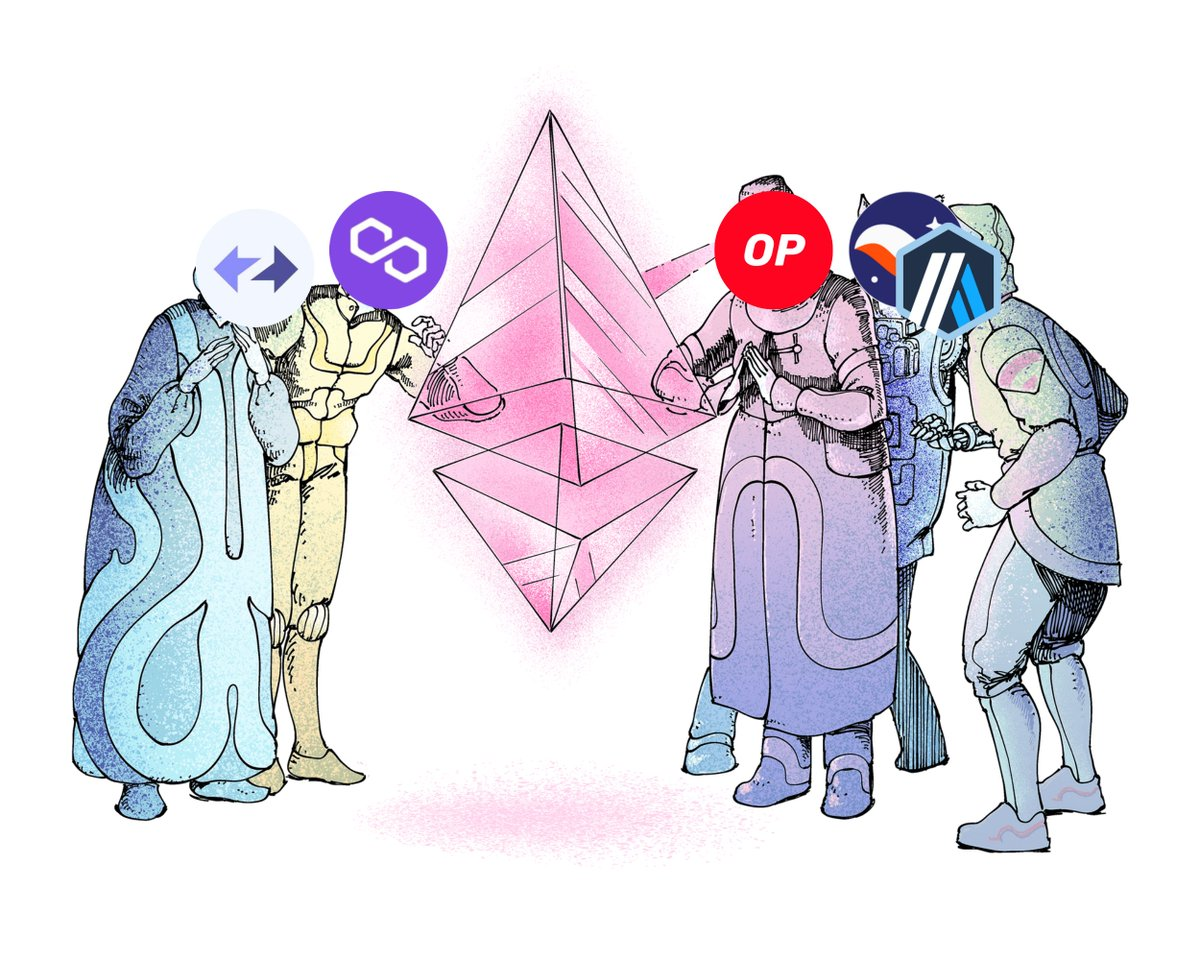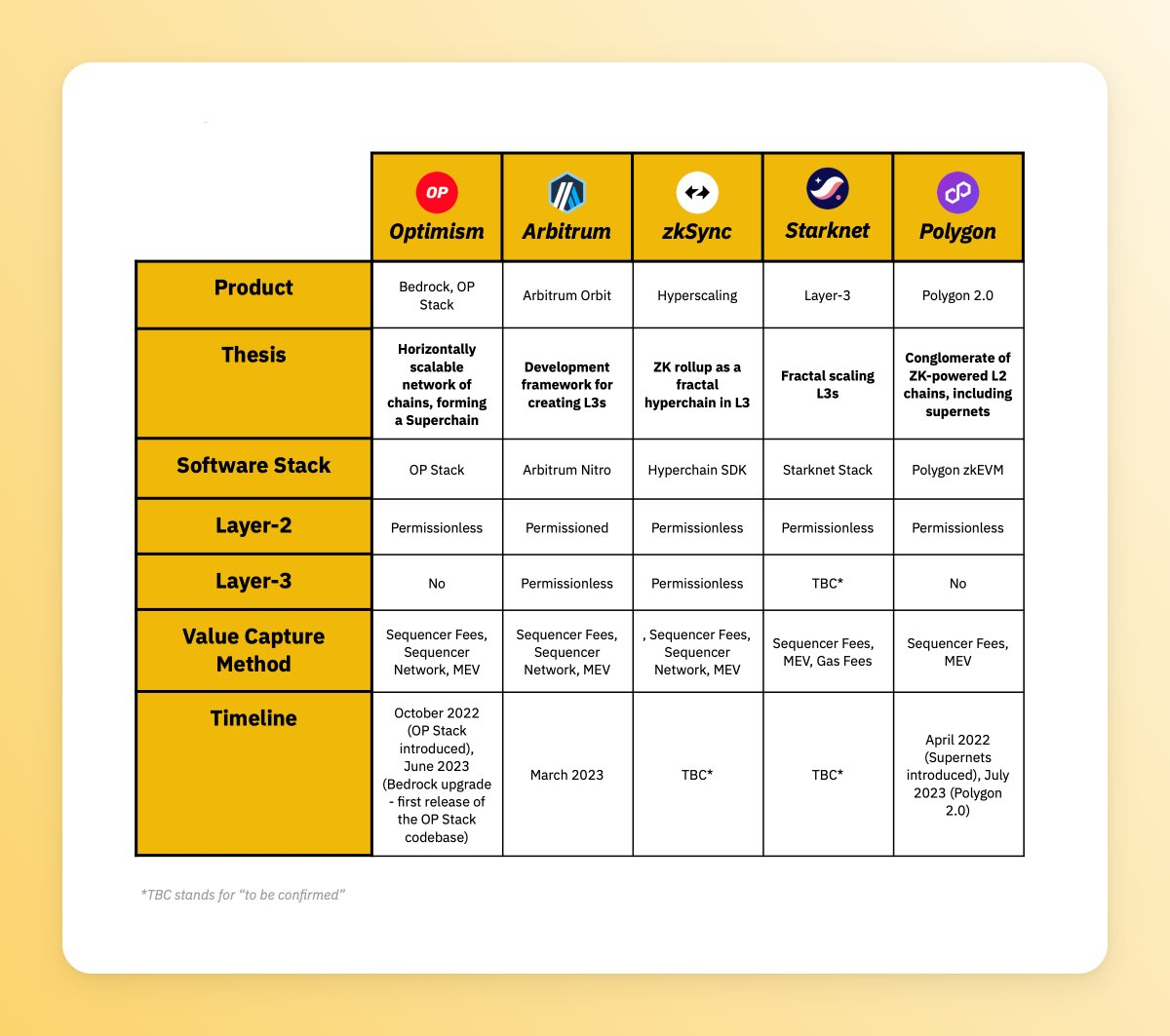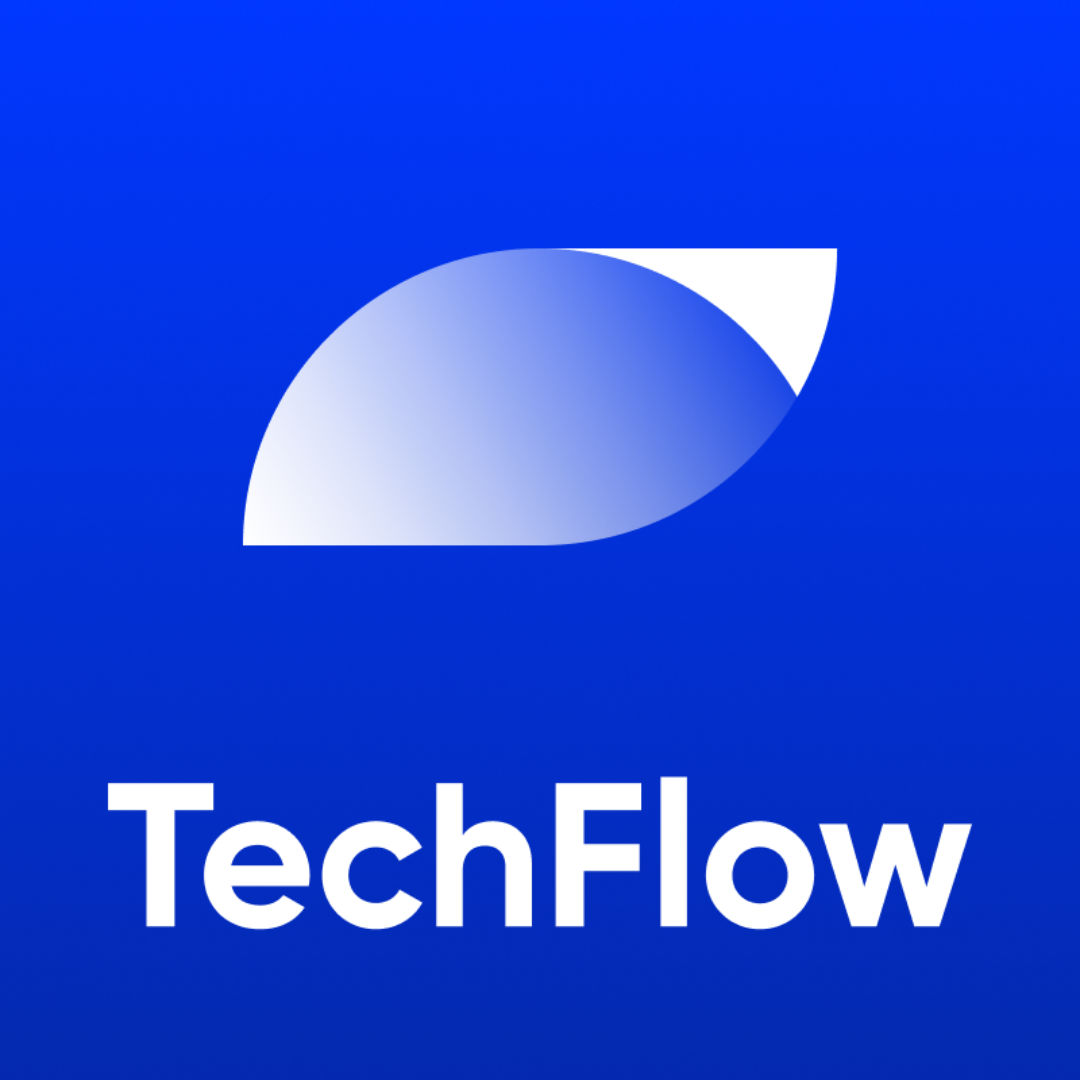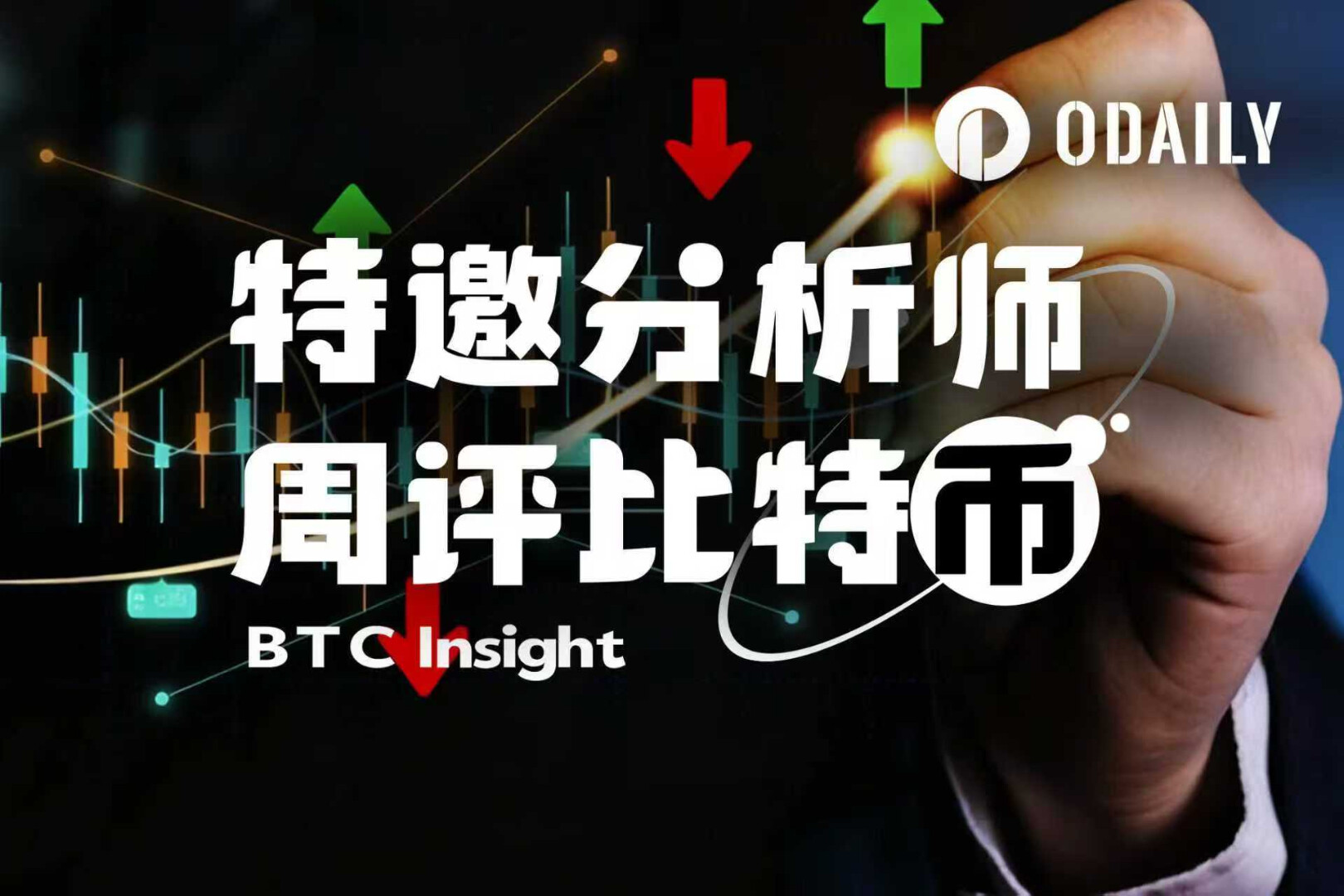A Brief Look at the Evolution of Ethereum Scaling Solutions: OP Stack, Arbitrum Orbit, Polygon 2.0...
Original Author: Stacy Muur
Original Translation: Deep Tide TechFlow
L2 warfare is heating up, and the future of Ethereum's expansion is expected to revolve around L3, SuperChain, and HyperChain. How to keep up with this trend? Let's delve into the forefront of L2 development.

Why has it evolved into this pattern? Although Ethereum operates as L1, it must have the operational capacity equivalent to the scale of the Internet. However, currently no single L2 possesses this capability.

From a higher dimension perspective, Web3 developers currently have three options:
• Deploy on Ethereum but sacrifice scalability.
• Choose L2 solutions but face risks of dependence on specific ecosystems.
• Deploy and maintain their own chains, but risk liquidity fragmentation.
In addition, achieving interoperability is also a major challenge. It turns out that our efforts to address this challenge using cross-chain bridges are fragile and have been continuously attacked by malicious actors. New challenges require innovative solutions. New challenges require innovative solutions.
The next wave of Rollups, such as OP Chains on Optimism, L3 on Arbitrum Orbit, or SuperChain on zkSync, will empower various entities with different objectives to create their own customized environments. You can think of it as deploying a new Rollup Chain = creating a new website.
Let's learn more about the solutions provided by key expansion participants.
Optimism & OP Stack
In October 2022, Optimism proposed:
• OP Stack - a modular open-source blueprint for creating scalable and interoperable blockchains of various types.
• SuperChain - a tightly integrated and unified L2 built on top of the OP Stack.
Simply put, OP Stack can be seen as a "supermarket" for building L2. It provides different layers (modules) that can be easily customized to meet the specific needs of a project.
By leveraging this approach, they can unleash the future potential of SuperChain.
In early June, Optimism announced that they are migrating their L2 Rollup to Bedrock. This release represents the first official launch of the OP stack, making the OP Mainnet the most cost-effective token exchange Ethereum L2 Rollup.
In addition, Bedrock has the following advantages:
• Shortens deposit time from 10 minutes to 3 minutes.
• Enhances proof modularity through support for fraud proofs and ZK proofs.
• Allows for execution of multiple transactions within a single Rollup "block".
After completing the Bedrock upgrade, Optimism's next step is to transition to the Super Chain.
The Super Chain is a decentralized network composed of L2 (OP Chain), which will share security, communication layer, and open-source technology stack (OP stack).
What's next? The Alpha stage starts from here.
• Optimism's L2 Rollup chain - the first member of the Super Chain.
• Coinbase's upcoming Base L2 - the second member, expected to announce the mainnet launch this year.
• Worldcoin also pledged to build on the OP Stack.
• AEVOXYZ, a decentralized options exchange, recently launched a Rollup based on the OP Stack in collaboration with Conduit.
• opBNB on the BNB Chain also utilizes the OP Stack.
• Zora Network, developed by OurZORA, is an L2 solution built on the OP Stack.
Arbitrum Orbit
Arbitrum is currently the largest and most advantageous L2 network measured by TVL (Total Value Locked), with a total value of over $5.9 billion, holding over 60% market share.
Arbitrum offers 4 core products:
Arbitrum One: This is the first mainnet Rollup of the Arbitrum ecosystem.
Arbitrum Nova: An AnyTrust solution designed for cost-sensitive and high-throughput projects.
Arbitrum Nitro: This technology software stack powers Arbitrum L2, making Rollup faster, cheaper, and more compatible with the Ethereum Virtual Machine (EVM).
Arbitrum Orbit: This development framework allows for the creation and deployment of L3 on the Arbitrum mainnet.
L3 Rollups, also known as application chains, play a crucial role in settling transactions to the Arbitrum chain. They form the foundation of Arbitrum's journey towards scalability and are the solution to achieve their vision.
Arbitrum places great emphasis on customizability. Orbit is designed to be compatible with the upcoming Arbitrum Stylus upgrade. This compatibility allows developers to build dApps using C, C++, and Rust, expanding the versatility and coverage of Arbitrum.
zkSync & Hyperchain
Now, let's turn to zkSync and its future vision for Ethereum scalability.
Hyperchains are zkSync's vision for L3, conceived as a vast ecosystem of interconnected blockchains that are trustless and customizable.
Simply put, Hyperchain refers to an independent ZK chain on Ethereum. These chains are interconnected through a series of customizable and completely trustless supercross-chain bridge networks. This approach helps overcome vulnerabilities typically associated with non-native bridges.
StarkWare & Fractal Scaling
In theory, the system can have an infinite number of Hyperchains to represent the whole. This is what StarkWare, as a pioneer of Fractal Scaling, needs to do.
In summary, StarkWare's Layer 2 network paper proposes L2 design for general scaling, while L3 is applied for custom scaling. However, aside from the initial publication of this paper, StarkWare has not made any further announcements.
Polygon 2.0
Polygon announced the latest update on the next phase of their L2 development in early June. Polygon 2.0 aims to create the "value layer of the internet".
This solution aims to improve interoperability between Polygon zkEVM, PoS, and the Super Network through a series of upgrades. By combining zero-knowledge technology with existing PoS mechanisms, Polygon aims to enhance security and privacy protection.
In Polygon 2.0, their goal is to combine the strengths of both technologies. A recent announcement from the Polygon team revealed their plan to transition Polygon PoS to zkEVM validium by the end of Q1 2024.
Overall, the evolution of Ethereum scaling solutions is a topic worth paying close attention to in the coming months. Each L2 giant has presented their own solution, but it remains to be seen who will ultimately emerge victorious.



